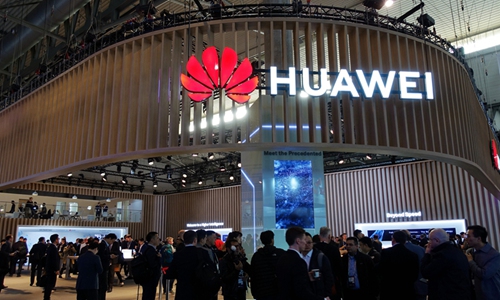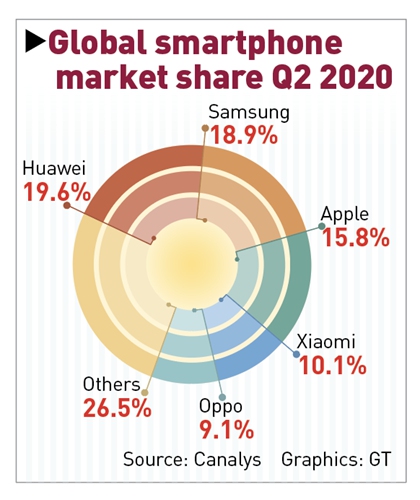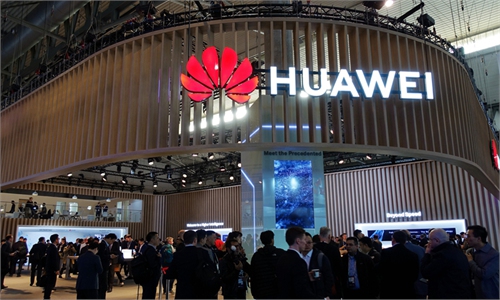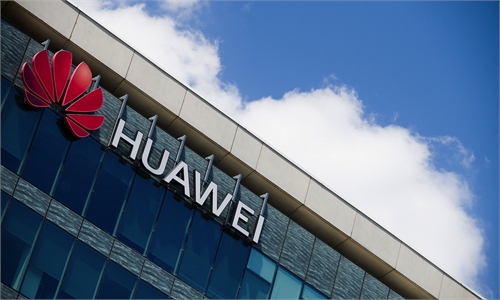Huawei temporary general license expires
Move a blow to global mobile sales as chip ban also draws near: analyst

People visit the booth of Chinese tech company Huawei at the 2019 Mobile World Congress (MWC) in Barcelona, Spain, Feb. 25, 2019. (Xinhua/Guo Qiuda)
The US has not renewed a temporary general license that expired on Thursday for Huawei, indicating that a ban aiming to prohibit US firms from exporting technology to the Chinese company may have officially taken effect - dealing a heavy blow to Huawei's overseas smartphone sales and perhaps even reshaping the global industry landscape, analysts said.
As the grace period for a chip ban is set to end in mid-September, the Chinese tech enterprise, which has been preparing for the worst-case scenario over the past year, will be able to survive but it may face an even more difficult time ahead, said analysts.
A license allowing some US companies to do business with Huawei expired on Thursday night, and the US Department of Commerce has not renewed it so far.
In May last year, the US put Huawei on a trade blacklist, saying the company "is engaged in activities that are contrary to US national security or foreign policy interest."
The Department of Commerce slightly eased the timing of the restrictions later, saying it would allow some transactions to continue for 90 days, to facilitate "certain activities necessary to the continued operations of existing networks and to support existing mobile services."
The Department of Commerce later extended the license several times - in August and November last year, and in March and May this year - but the latest extension expired on Thursday night.
"As the ban officially comes into effect, the biggest blow could be to its mobile businesses - a cut to Google's services may exert a major impact on its already weakening overseas mobile business," Ma Jihua, a veteran industry analyst and close follower of Huawei, told the Global Times on Sunday.
Over the past year, despite the US ban, Google has received a series of temporary general licenses from the Department of Commerce that have allowed it to continue supporting existing hardware with software updates.
Ma noted that with Huawei's large share in the global smartphone market, the move may reshape the sector and force Huawei to shift focus from its surging mobile businesses to laptops and TVs.

Amid the US' intensified crackdown, Huawei in the second quarter unseated Samsung to become the top smartphone vendor globally - a status largely fueled by its growth in China. It also represented the first time a smartphone vendor other than Apple or Samsung had occupied the top spot in nine years, said Canalys, a technology research firm.
Huawei took 19.6 percent of the global market by shipping 55.8 million devices in the second quarter of 2020, according to Canalys.
However, being in the top spot might be a short-lived situation as the US chip ban, which will prevent it from manufacturing self-developed chips, will also dampen its standing in the intensely competitive Chinese market, said analysts.
"With all the bans set to take effect soon, the company may face a very difficult time. But both the US and the industry are fully aware that the US cannot strangle the firm, and the Trump administration has played all the cards it has with Huawei," Xiang Ligang, director-general of telecoms industry association Information Consumption Alliance, told the Global Times on Sunday.
The firm has been preparing for the worst-case scenario from the start, both in hardware and software, Ma said, noting that Huawei has stockpiled enough chips for some time and is ramping up efforts to develop its ecosystem to replace Google.
Due to the rapid development of the HMS ecosystem and external pressure, Huawei may soon launch a smartphone equipped with its self-developed HarmonyOS, according to a media report that cited industry information on Sunday.
Xiang said an early expiration of the license may affect the telecommunications infrastructure in the US' vast rural areas more than Huawei itself.
"The license was intended to win time for small carriers to replace the inexpensive Huawei equipment in the rural areas," Xiang said.
"But since the US is still struggling with the pandemic, small carriers in the country are apparently not ready to fully replace Huawei's equipment," Ma said, adding that if Huawei was not allowed to maintain and update equipment in these mostly rural areas under the ban, the impact will emerge within months, if not immediately.
The Trump administration may not have the time or interest to deal with small carriers' interests, unlike those of big firms, as the key presidential election is drawing near, said analysts.
According to a report from Defense News, the Trump administration is granting the Pentagon a temporary waiver of a government-wide ban on contractors using Huawei and other Chinese-made telecommunications equipment, citing a memo it obtained.
The move offers a reprieve, but only until September 30, for companies that are among those reeling from the economic effects of the coronavirus pandemic doing business with the Department of Defense, the report said.


